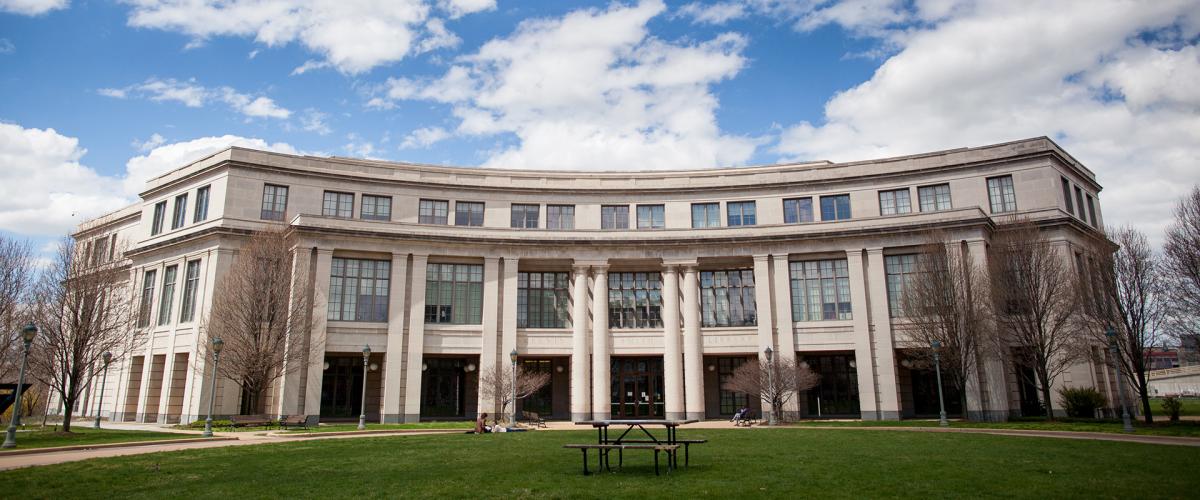In early 2024, the Clinical and Translational Science Award (CTSA) Coordination, Communication, and Operations Support (CCOS) Center awarded Working Group (WG) status to the “Translational Science Case Group”. This group, officially known as, "Learning about the Science of Translation: Identifying Best Practices to Accelerate the Translational Process Through Case Studies" is co-led by Clara Pelfrey, Director of Evaluation at the Clinical and Translational Science Collaborative (CTSC) of Northern Ohio, alongside Deborah DiazGranados, Evaluation Director for Virginia Commonwealth University’s Center for Clinical and Translational Research. This WG aims to explore best practices in accelerating the translational process by investigating case studies. The award from CCOS includes 30 CTSA hubs involved as members or contributors of translational success stories.
Translational Science (TS) works to translate research discoveries into real health improvements, a process that can take 18-20 years to develop new medical treatments. The National Center for Advancing Translational Science (NCATS) established the CTSA to enhance research infrastructure in the United States. Assessing the effectiveness of this investment in improving human health involves showcasing success stories through TS case studies. A case study is an intensive analysis involving the collection of data to allow an in-depth understanding of a specific process or situation. A retrospective translational science case study is uniquely suited to look back over the development of a successful health intervention to systematically assess the complex processes involved in effectively translating an idea or a discovery into better human health. As an evaluation method, case studies are a valuable type of storytelling using a rigorous method to help readers see the whole story.
We have been developing a process for and conducting case studies of successful research since 2017 to learn about the clinical and translational process – how it works when it is working well, as well as discovering the challenges and how those obstacles were overcome, leading to discoveries and improved health.
The Translational Science Case Studies WG has worked on several individual TS case studies over the last few years. Several notable successes include:
- Publishing a rigorous protocol for conducting a TS case study in collaboration with NIH researchers in Science Policy & Planning and Evaluation, Performance, and Reporting.1
- Transforming the TS Case Study Protocol paper into a science podcast or "SciPod". 2
- Successfully lobbying the Journal of Clinical and Translational Science (JCTS) to create a new manuscript category: the “Translational Science Case Study”.3
- Creating a classification system for the TS case studies to enable future cross-case analysis.4
- Numerous publications of successful TS case studies. 4-8
- Collaborating with NIH scientists at the ACTS TS 2022 meeting on a presentation: “Advancing translational science: using case studies to identify, teach, and disseminate effective approaches”.9
We are excited that this new WG has attracted a total of 30 CTSA hubs to this project.
The goal of this WG is to conduct a comparative case study (e.g., a meta-synthesis) of translational science case studies. This will involve developing new case studies through interviewing investigators and collaborators, as well as identifying existing case studies that are published online and conducting further interviews with investigators to discover the challenges, facilitators and societal impacts from their existing case studies. The goal of this collaboration is to generate new knowledge about the nature of the translational science process by investigating and comparing successful translational science cases that have led to positive impacts on human health. During this process, we will discover critical facilitators, challenges, methods of overcoming roadblocks, and human health impacts. Translational Science Case studies can illustrate the impact that CTSA hub services have had on individual researchers. Comparing case studies to each other in cross-case analyses has the potential to reveal valuable insights that we can use to develop a best practices model for multiple different stakeholders, including TS trainees, established investigators, healthcare stakeholders, research teams, institutions, CTSA hubs, funders, Congress and the public.
By fostering collaboration among CTSA hubs, the WG seeks to generate actionable insights that will advance the translational science field and promote effective approaches for improving human health outcomes.
Author: Clara M. Pelfrey, PhD, Director of Evaluation - CTSC of Northern Ohio
References
- Dodson, S., Kukic, I., Scholl, L., Pelfrey, C., & Trochim, W. (2021). A protocol for retrospective translational science case studies of health interventions. Journal of Clinical and Translational Science, 5(1), E22. doi:10.1017/cts.2020.514
- Charting How Research Leads from Discoveries to Improved Health
- TS case study manuscript category at JCTS
- Qua, K. Swiatkowski SM, Gurkan UA, Pelfrey CM. A Retrospective Case Study of Successful Translational Research: Gazelle Hb Variant Point-of-Care Diagnostic Device for Sickle Cell Disease. JCTS, 2021. doi:10.1017/cts.2021.871
- Brewer SK, Davis JM, Singh R, Welch LC. Establishing evidence-based pharmacologic treatments for neonatal abstinence syndrome: A retrospective case study. Journal of Clinical and Translational Science. 2022;6(1):e96. doi:10.1017/cts.2022.431
- Samuels E, Champagne E, Gravelin M, Racklyeft J, Weatherwax K. Adapting an Expanded Access program to enable investigational treatments for COVID-19. Journal of Clinical and Translational Science. 2022;6(1):e77. doi:10.1017/cts.2022.403
- Rojas C, Spector SA, Cale B, et al. A framework and road map for rapid start-up and completion of a COVID-19 vaccine trial: A single clinical trial site experience. Journal of Clinical and Translational Science. 2022;6(1):e21. https://doi.org/10.1017/cts.2022.3
- Smith, M., Gigot, M., Harburn, A., Bednarz, L., Curtis, K., Mathew, J., & Farrar-Edwards, D. (2023). Insights into measuring health disparities using electronic health records from a statewide network of health systems: A case study. Journal of Clinical and Translational Science, 7(1), E54. doi:10.1017/cts.2022.521
- Jessica M. Faupel-Badger, PhD MPH; Amanda L. Vogel, PhD MPH; Clara M. Pelfrey, PhD; Deborah DiazGranados, PhD. Advancing translational science: using case studies to identify, teach, and disseminate effective approaches. Translational Science 2022. Association for Clinical and Translational Science. Chicago, IL. Apr. 21, 2022. https://www.actscience.org/Translational-Science/Program/Thursday-April-21





